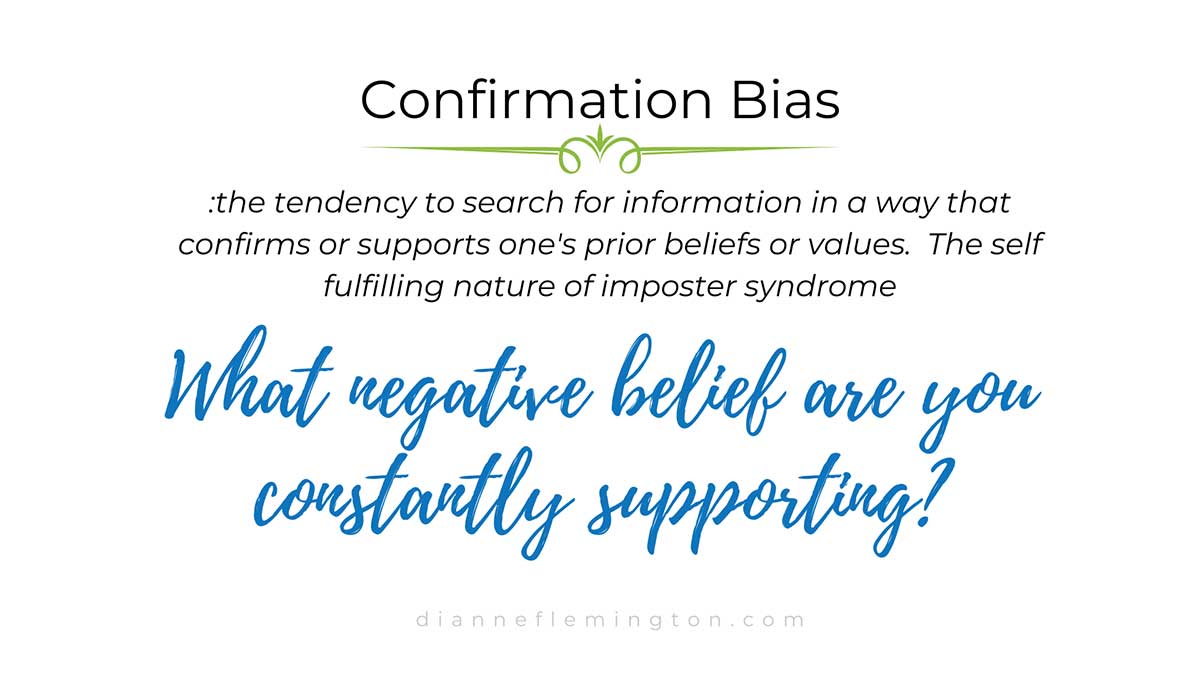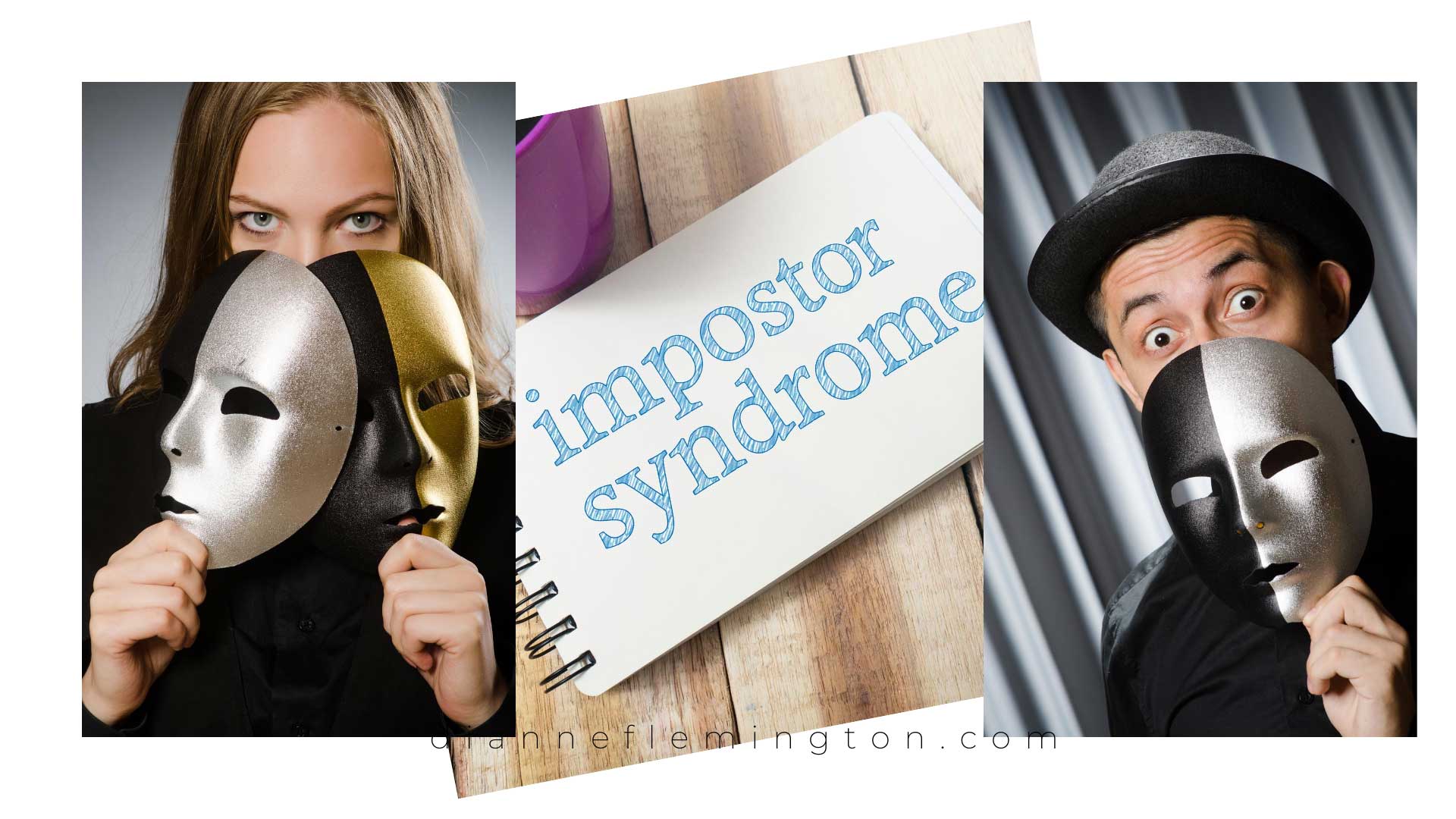“Oh God! Not now!?”
The last unconscious thought before you start to slip into that world where you are not enough, are not the one, feel like a fraud or that you’ll get found out.
Pick one. These are common points of entry into our Imposter syndrome experiences.
You think you’re in a place where you don’t fit, don’t have that skill level, the right personality or maybe it’s the new job title that has you imagined as more than you ever thought of yourself to be. Perhaps you find yourself inside a critical project, around a table of stakeholders, having to declare and share your points of view. Suddenly, “who am I to be here?” crosses your mind. You begin to sweat, fidget, feel a sinking feeling or that the floor is dropping out from underneath you.
The aftershock of these experiences leaves you feeling gray at best and feeling much self doubt.
Good news! For how long and if it will reoccur is totally in your power to recreate.
Please believe it’s a common occurrence for many.
For me…
Lately, during this pandemic and more than I care for, I wake with this anxiety of not adding up or being able to accomplish what I had planned, being a complete disappointment and not having the skill set to help others.
My brain looks for all the evidence to prove I’m right. It feels harsh and ruthless.
This is my imposter syndrome rearing its head in regards to my success as a business owner.
Why do we have these experiences that we call Imposter Syndrome?
Imposter Syndrome can be defined as a condition where people believe they are not worthy of success, as defined or undefined by self, and persistently believe in their lack of skill, knowledge or ability in regards to that success.
This can be anyone; parents, teachers, undergrads, business owners, CEO’s. Imposter Syndrome does not discriminate. It is mostly the combination of how you unclearly see yourself (something you have not done before, a level of skill you have not yet met, etc) meeting a negative thought inside an experience (a role, responsibility).
Think about it for a minute.
You have been given the responsibility to do something.
You being the ‘doing something’
You begin to have thoughts inside the ‘doing something”
You begin to measure yourself against your thoughts
Those thoughts untested start to place you in an uncomfortable vision of what may happen, or not happen, in the future of your ‘doing something’
Follow me?
This same process can happen inside an active moment with others.
When you are amongst peers or people you don’t know well and inside the responsibility assigned to you, you suddenly begin to lose your way, your confidence, you can no longer see yourself being or having success or the desired outcome, for whatever the reasons you’ve imagined.
The negative thoughts come along with the physical experiences (shakes, sweats, fidgets) and they come quicker than you are able to get yourself thinking straight . You begin to fall deep into the effects of imposter syndrome.
We are all subject to our disempowering thoughts. Especially when we have undefined beliefs about our self, our success and others. Key word here and your first exercise to resolving imposter syndrome is; Get your beliefs in order.
Simply put..we have not done the personal awareness work in that area that is being revealed to us. It is an opportunity to get clear on the truth in the moment and what we want from that moment.
What I notice when I take the time to challenge my thinking on my business, is that I have not spent time acknowledging my contributions, my successes and reading the feedback and testimonials of those who share how I’ve supported and helped them.
Skimming right over the outcomes of my work does not allow my brain to accept the data and use at a later time. Being able to see how I am succeeding in business when I may doubt it.
The next exercise is doing the work to build evidence against our negative thinking.
Even if you’ve not done something before, which is the common cause of imposter syndrome, you have done plenty new before, use these past experiences as evidence to create a case for your brain as to why you are capable today.
Here’s what I know is true about resolving the experience(s) of imposter syndrome.

There is duality in our imagination. If we are to believe the negative we must equally shine light on the positive. As much as I can experience and believe those negative thoughts that I don’t know how to be a good business owner I can equally create positive thoughts that I have coached my one hundredth team and helped thousands of people create a high level of self awareness and fulfillment in their work and their are testimonials that say so.
Your next exercise is to test your thinking!
Don’t just let your thoughts take you on a wild powerless painful ride without a fight for the truth.
Byron Katie’s ‘the work” is magnificent for this!
Starting off with a simple “Is it true?”
Place this against your thought.
Slowing down and making time to listen to your response.
My experience inside the thought that I am not a successful business owner or team coach, would follow the exercise like this;
ME: I am a terrible business owner and team coach
ENQUIRY: Is it true?
ME: (sit in what shows up when I ask myself. Sit on both sides of the enquiry of positive and negative
I slow down to notice what may be ego’s self defence and the difference that my body delivers as what feels true for me.
ME: Yes (to terrible business owner) No (to terrible team coach)
ENQUIRY: How do I know this is true?
ME: I don’t pay attention to the metrics of business ownership, it’s an area I struggle to be interested in and learn. I do pay close attention to coaching skills and competencies with consistent training and practice and my referral business and positive feedback is exciting.
What I can share with you is that by slowing down and practicing enquiry with yourself, and being open to listening to the truth, you can transition yourself out of the effects of imposter syndrome more and more quickly with practice.
No one is immune to feeling like a fraud at times in their life; you are not alone.
No one will erase the experience without doing self awareness and thought work.
To really dig into understanding yourself and practicing these and other techniques to help reduce and even remove your experiences of imposter syndrome we offer an online workshop to share and declare our imposters and do the work in a small group coaching format.
#weareallinthistogether
Research and facilitation by Dianne Flemington

